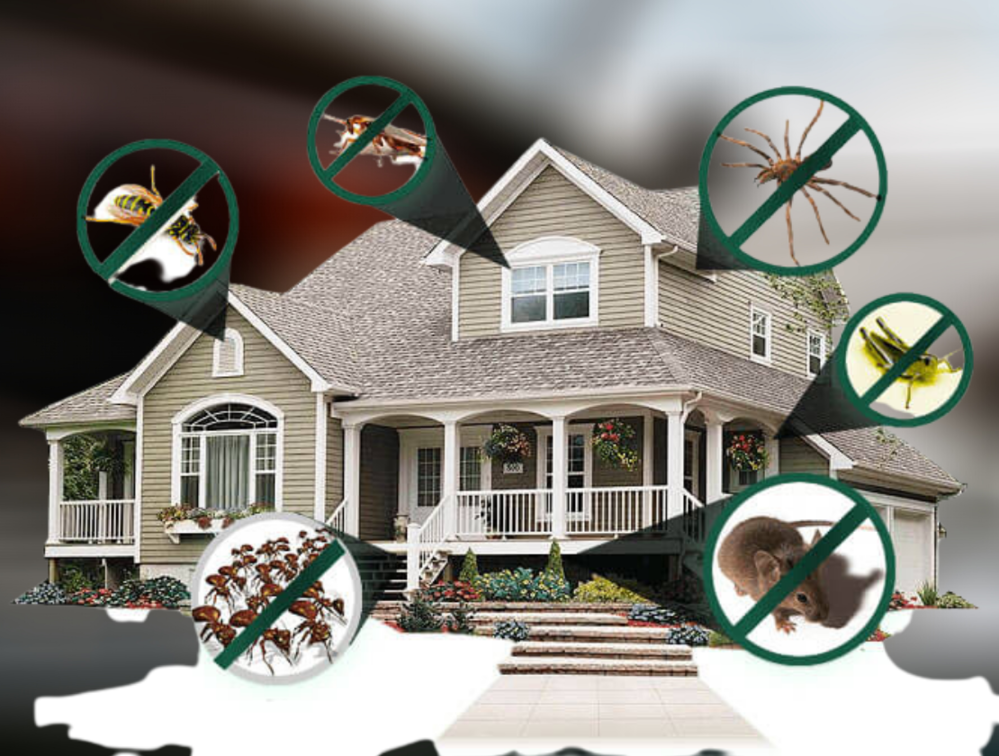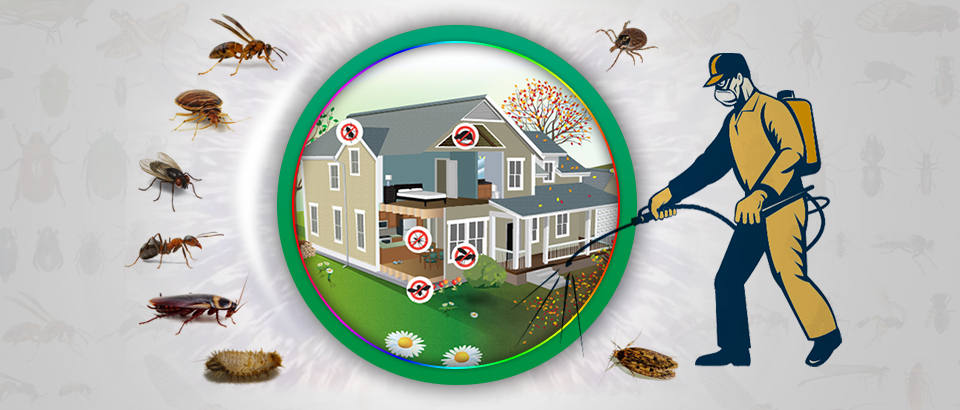Maintaining a pest-free environment is essential for the comfort and well-being of your household. Unwanted insects and rodents can damage your property and pose health risks. To safeguard your home from these nuisances, it’s crucial to implement reliable residential pest control measures.
We’ll explore practical strategies, expert tips, and frequently asked questions about residential pest control. From preventative measures to targeted treatments, we’ll equip you with the knowledge to keep your home bug-free.
Table of Contents
Understanding Residential Pest Control
When it comes to residential pest control, it’s crucial to comprehend the nature of the problem. Pest control refers to managing and eliminating unwanted pests within a residential setting. This includes insects such as ants, cockroaches, termites, bed bugs, and rodents like mice and rats. By understanding these pests’ behavior, habits, and vulnerabilities, you can effectively implement control measures that ensure a pest-free home.

Identifying Common Household Pests
Before devising a pest control plan, it’s essential to identify the types of pests commonly found in residential areas. You can tailor your approach by recognizing their appearance, habits, and preferred habitats. Some common household pests include:
- Ants
- Cockroaches
- Termites
- Bed bugs
- Mosquitoes
- Flies
- Spiders
- Mice
- Rats
- Wasps
Prevention: The First Line of Defense
Preventing pests from entering your home is the most effective way to ensure long-term residential pest control. By following these preventive measures, you can minimize the risk of infestations:
Seal cracks and crevices: Use caulk or weatherstripping to seal gaps and openings where pests can enter.
Keep a clean environment: Regularly clean your home, including floors, countertops, and storage areas, to eliminate potential food sources for pests.
Dispose of garbage properly: Seal trash bags tightly and store them in lidded containers to prevent pests from being attracted to your waste.
Remove standing water: Eliminate stagnant water sources in and around your home, as they attract mosquitoes and other insects.
Trim vegetation: Keep shrubs, trees, and bushes trimmed and away from the exterior of your house to prevent easy access to pests.
Store firewood away: If you have firewood, store it at least 20 feet away from your home to discourage pests from nesting in it and migrating indoors.
DIY Pest Control Techniques
If you’re dealing with a minor pest problem, you can try some do-it-yourself pest control techniques before seeking professional assistance. Here are some effective methods:
Natural repellents: Use natural remedies such as peppermint oil, vinegar, or citrus peels to repel pests. For example, ants dislike the smell of peppermint, making it an effective deterrent.
Traps and baits: Set up traps and baits for pests like mice, rats, and cockroaches. These can help capture or eliminate them.
Proper storage: Store food in airtight containers to discourage pantry pests like ants, weevils, and moths from infesting your kitchen.
Hiring Professional Pest Control Services
When faced with a severe or persistent pest problem, hiring professional pest control services is advisable. Pest control experts possess the knowledge, experience, and resources to tackle infestations effectively. Here are some reasons to consider professional assistance:
Specialized expertise: Pest control professionals are trained to identify specific pests, their behaviors, and the most effective treatments.
Targeted treatments: Professionals can apply treatments that are safe for your family and pets while eliminating pests.
Long-term solutions: By addressing the root cause of the infestation, professionals can provide long-term solutions to prevent future pest problems.
Time and convenience: Hiring professionals saves you time and effort as they handle the entire pest control process from inspection to treatment.
Common FAQs about Residential Pest Control
What are the ways to prevent pests from entering my home?
To prevent pests from entering your home, ensure proper sealing of entry points, keep a clean environment, eliminate standing water, and trim vegetation around your property.
What are some natural remedies for pest control?
Natural pest control remedies include peppermint oil, vinegar, citrus peels, and diatomaceous earth. These substances can repel or eliminate pests without the use of harsh chemicals.
When should I seek professional pest control services?
Consider seeking professional pest control services when you have a severe or persistent pest problem or cannot effectively control the infestation.
How often should I schedule pest inspections?
It’s recommended to schedule pest inspections at least once a year to proactively detect any signs of pest activity and prevent infestations before they become severe.
Can pests cause health problems?
Yes, pests can cause health problems. Some pests, such as mosquitoes and ticks, can transmit diseases, while others, like cockroaches and rodents, can trigger allergies and asthma.
What are the signs of a pest infestation?
Signs of a pest infestation include the presence of droppings, gnaw marks, unusual odours, damaged food packaging, nests, and sightings of live pests.
Stay proactive
Ensuring a pest-free living space is vital for your household’s comfort, health, and safety. Understanding residential pest control methods, identifying common pests, and implementing preventive measures can effectively protect your home from infestations. DIY techniques can be helpful for minor problems, but professional pest control services are essential for severe infestations. Stay proactive, and enjoy a bug-free home!



